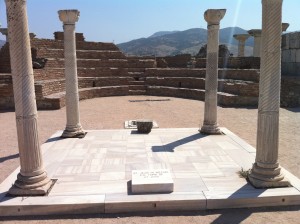
When the Apostle Paul arrived in Athens, he probably didn’t know what to expect. Yet, it wasn’t too long before he had led an Athenian Supreme Court justice to the Lord and others as well. (Acts 17:34).
If you are a Christian, here’s four things you can learn from Paul’s success in Athens that will make you more effective in sharing the Gospel. (Acts 17:16-34).
1. Be Observant. Paul was observant. He observed the Athenians’ culture and religious practices. (Acts 17:16, 22). This gave him a place to start when he began sharing the gospel with them.
2. Be Relevant. Paul was relevant. When speaking to these Greeks, Paul quoted from Greek poets: Epimenides ( v. 28 — “…in Him we live and move and exist….”) and Aratus (v. 28–“For we also are His offspring.“). Paul was well-read and knew the Greek culture. Consequently, he was able to connect with his audience and draw them in.
3. Be Provocative. This doesn’t mean to be rude, but you shouldn’t be shy about challenging belief systems and provoking people to reexamine their faulty worldviews. Paul told the Athenian Supreme Court he knew the God they worshipped in ignorance (v. 23) and that God did not dwell in their temples (v. 24). He said this with one of the most famous temples in the world–the Parthenon, the temple of the Greek goddess Athena–just a few hundred yards away. Pretty provocative.
4. Be Attuned. To your audience, that is. When standing before the Areopagus, Paul knew he was speaking to judges, so he talked to them about judgment (“…He has fixed a day in which He will judge the world…”) and evidence (“…having furnished proof to all men by raising Him from the dead”), two things–judgment and evidence–judges know something about. (Acts 17:31).
Do you do these things? I’m interested in your comments on any experiences you might have had. GS




